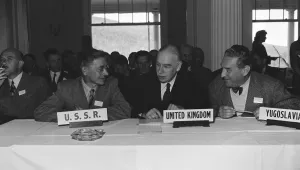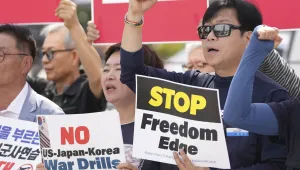Why do states, as members of international organizations and parties to international negotiations, adopt policies that require gender emancipation? Have these actors been convinced by the persuasive argument and effective advocacy of feminists? Of do they have another reason? This paper, an introduction to a project that explores these questions, provides several potential hypotheses to answer the question of why (apparently) gender-emancipatory policies come into being. It explores both their potential explanatory value and the potential political and scholarly implications of these explanations for the presence of 'international system feminism' in global politics. If there is a phenomena of system feminism, how can gender be strategically appropriated by actors in global politics?
Please join us! Coffee and tea provided. Everyone is welcome, but admittance will be on a first come–first served basis.
This seminar is co-sponsored by the Women and Public Policy Program.




